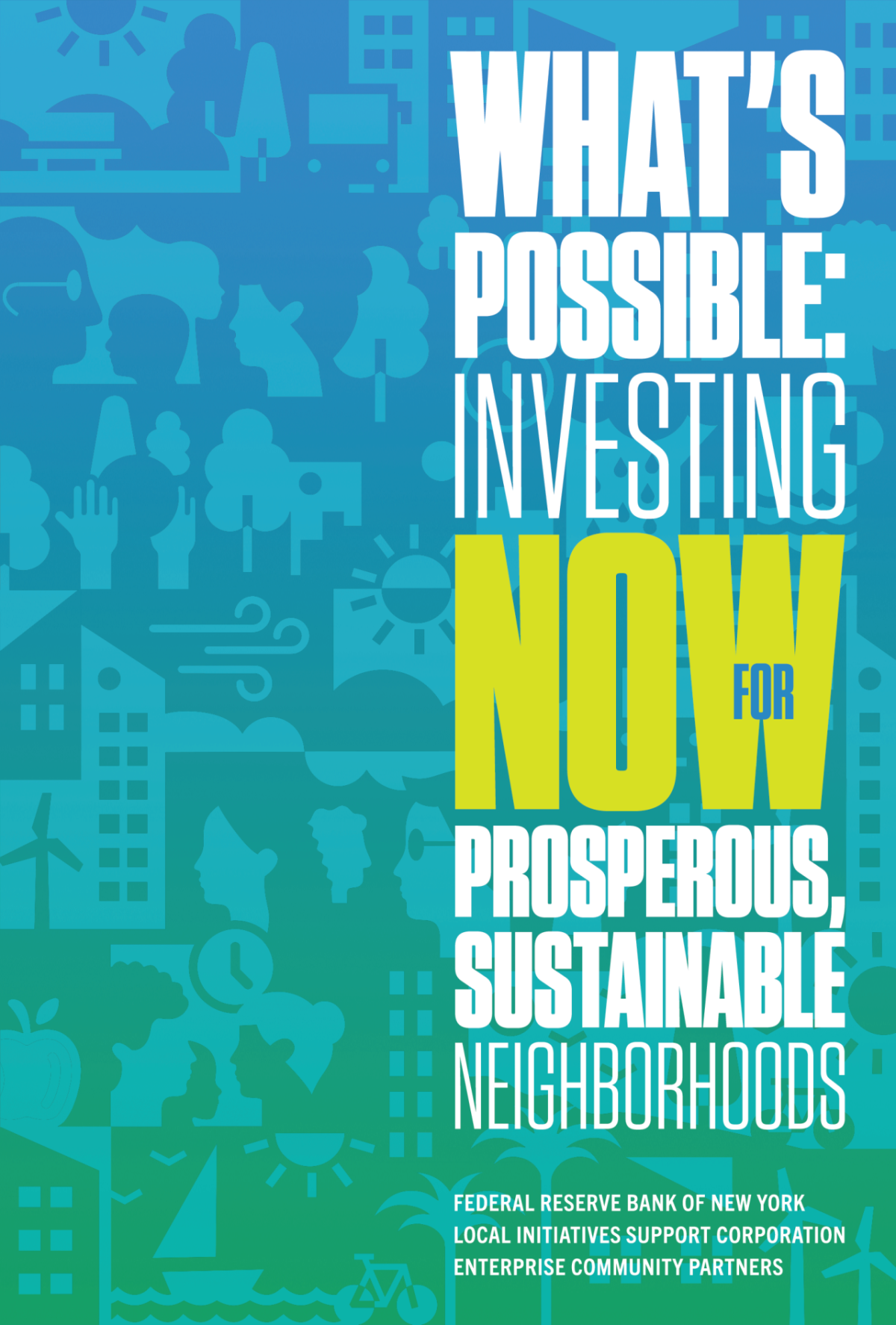Enterprise, LISC, and the New York Fed to Publish Book on Community Development and Climate Change
Book to outline solutions for tackling the most pressing climate challenges facing communities

NEW YORK, October 17, 2023 /3BL/ - Today Enterprise Community Partners, the Local Initiatives Support Corporation (LISC), and the Federal Reserve Bank of New York announced plans to publish the seminal text on community development and climate change, What’s Possible: Investing NOW for Prosperous, Sustainable Neighborhoods. The book will channel the voices of 30 leading climate and community development experts to lay out the challenges communities of color and low-income communities face on the frontlines of climate change – and what can be done to fortify those communities. Funded by the Wells Fargo Foundation, the book will be available in early 2024.
As UN climate scientists made clear in a report released this fall, the opportunity to ensure a resilient future for all is rapidly receding, and we must accelerate actions to reduce carbon emissions. The technologies and strategies are there, but far too often they fail to reach the most vulnerable. Across the United States, low-income Americans and people of color are often poorly positioned to withstand the effects of climate change. Now more than ever, ensuring a more equitable future means ensuring that all communities across the country are investing in sustainable systems, technologies, and solutions.
Through the lens of the community leaders driving this movement, the book will explore how governments, the private sector, thought leaders, and civil society can all contribute to the transformation of American communities. Deploying practical case studies, the text will serve as a nationwide call to action for how to craft a transition to a cleaner economy and more resilient future without leaving millions of people behind.
“As increasing greenhouse gas emissions escalate the frequency and intensity of natural disasters, we need to act now to ensure every community can thrive,” said Krista Egger, vice president of Building Resilient Futures at Enterprise Community Partners. “We have an opportunity to make bold climate investments while addressing our country’s aging infrastructure, racial inequities, health crisis, and economic downturn. This book outlines not only what’s possible, but how to get it done.”
“Climate risk is a civil rights issue, with social and economic consequences that directly connect to where people live, how much they earn and the color of their skin,” said Michael T. Pugh, LISC CEO. “When we develop climate solutions that respond to long-standing inequities, we have the chance to build a stronger, healthier, future for tens of millions of people and better protect the planet.”
“The private sector and nonprofits can make investments now that will protect communities and strengthen the economy,” said Claire Kramer Mills, director of Community Development Analysis at the New York Fed. “We hope the case studies in this book will serve as creative examples for investors and community leaders to replicate and build on.”
“Wells Fargo recognizes that the impact of climate change affects some communities more than others, especially underserved communities," said Robyn Luhning, chief sustainability officer at Wells Fargo. “We look forward to the insights and thoughtful perspectives from this book that can support our customers and all communities in the transition to a resilient, equitable, and sustainable future.”
The book will be available in print and online at no cost and will launch with a nationwide series of conversations – both virtual and in-person – featuring a collection of the book’s authors, as well as experts in the field. A digital outreach campaign will engage policymakers, investors, philanthropists, and government officials to ensure community voices are fully included in the national debate over climate change, decarbonization, and resilience.
Among the topics to be explored in the book:
- Defining climate resilience and why it matters for community development
- Delivering the health benefits of decarbonization and clean energy to communities
- Developing clean energy systems that don’t burden residents
- Ensuring equity in greener forms of public and private transportation
- Investing in workforce development for Indigenous communities in the green economy
- Facilitating resilient, equitable communities through federal, state, and local policies
For updates on the book, follow Enterprise and LISC on LinkedIn. More information will be shared on whatspossiblebook.org closer to the launch.
Media Contacts:
Stephen Fee
Enterprise Community Partners
202-309-8892
sfee@enterprisecommunity.org
Colleen Mulcahy
Local Initiatives Support Corporation (LISC)
312-342-8244
colleen@mulcahycommunications.com

